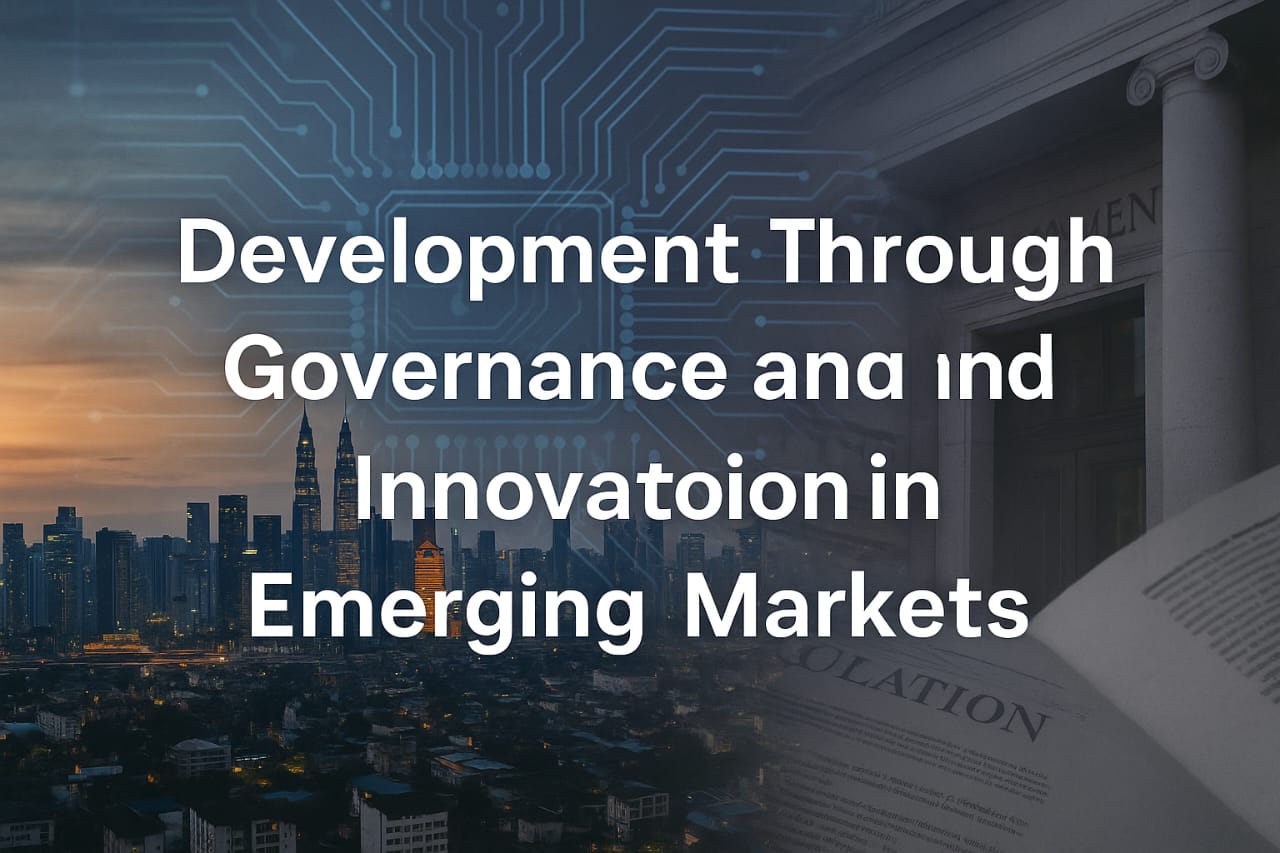Development Through Governance and Innovation in Emerging Markets

Strong 8k brings an ultra-HD IPTV experience to your living room and your pocket.
Abiodun Abbey Ogunwale, PhD
Emerging markets, particularly in Africa, stand at a crossroads of opportunity and challenge. With a young, dynamic population and abundant resources, these regions have the potential to drive significant economic growth. However, achieving sustainable progress requires robust public sector management, innovative business development strategies, and the strategic use of technology. By fostering governance and public policy that prioritize transparency and efficiency, and by creating an enabling environment for businesses, emerging economies can unlock their full potential. This article explores how governments and businesses can collaborate to address governance challenges in Africa, promote business opportunities, and achieve sustainable development goals.
Enhancing Public Sector Management
Effective public administration is essential for building trust and delivering services in developing nations. Governments must design policies that address critical needs, such as education, healthcare, and infrastructure, while ensuring resources are used efficiently. Capacity building in public administration is a key strategy for achieving this. Training programs and leadership development initiatives empower public officials to make informed decisions and implement reforms effectively. For example, public administration reforms in countries like Ghana have streamlined processes, reducing bureaucratic delays and improving service delivery [1].
Government policy analysis plays a crucial role in ensuring policies are evidence-based and responsive to local needs. By analyzing data and engaging with stakeholders, governments can create economic policy frameworks that promote inclusive growth. These frameworks are particularly important in addressing poverty and inequality, which are central to sustainable development goals. Moreover, fostering government transparency through open budgeting and accountability measures builds public trust and reduces corruption, creating a stable environment for both governance and business [2].
Catalyzing Economic Growth Through Business
The investment climate in developing countries is improving, with Africa emerging as a hub for entrepreneurship and innovation. Business opportunities span diverse sectors, including technology, agriculture, and renewable energy. To succeed, businesses must adopt best practices for growth in emerging markets, such as understanding local regulations and building partnerships with communities. Governments can support this by creating policies that reduce barriers to entry and provide incentives for sustainable investments [3].
Public-private partnerships (PPPs) are a powerful mechanism for driving economic progress. These collaborations enable governments and businesses to address infrastructure gaps, such as transportation or energy networks, which are critical for growth. For instance, in Ethiopia, PPPs have facilitated the development of industrial parks, attracting foreign investors and creating jobs. Such initiatives align with economic policy frameworks that prioritize long-term development and job creation [3].
Leveraging Technology for Transformation
Technology is transforming public administration, enabling governments to deliver services efficiently and transparently. E-government initiatives, such as online platforms for tax payments or public service applications, have revolutionized how governments operate in Africa. These systems reduce administrative costs, minimize corruption, and make services more accessible to citizens. In Kenya, digital platforms have simplified business registrations, encouraging entrepreneurship and supporting business development strategies [1].
Technology also enhances government policy analysis by providing data-driven insights. Governments can use analytics to assess the impact of policies on economic development, ensuring resources are allocated effectively. For example, real-time data collection has enabled African governments to respond quickly to public health crises, improving outcomes and building trust [2].
Addressing Governance Challenges
Governance challenges in Africa, such as weak institutions and political instability, can hinder progress. Addressing these requires strategies for enhancing government accountability, such as transparent budgeting and independent audits. Engaging citizens in decision-making processes fosters trust and ensures policies reflect local priorities. In South Africa, community forums have allowed citizens to provide input on development projects, leading to more inclusive outcomes [3].
Public administration reforms are critical for overcoming these challenges. By streamlining processes and adopting e-government initiatives, governments can improve efficiency and reduce opportunities for corruption. These reforms are particularly important in resource-constrained environments, where maximizing the impact of limited resources is essential [2].
Creating a Thriving Investment Climate
A favorable investment climate in developing countries is essential for attracting businesses and driving growth. Africa’s growing consumer markets and natural resources make it an attractive destination for investors. However, challenges like regulatory complexity and infrastructure deficits must be addressed. Governments can simplify regulations, improve infrastructure, and offer incentives for sustainable investments. Rwanda’s business-friendly policies have made it a model for improving public sector efficiency, attracting significant foreign investment [3].
Businesses must also adapt to local contexts, building strong relationships with communities and stakeholders. Community-driven initiatives, such as agricultural cooperatives or renewable energy projects, can create jobs and empower local entrepreneurs. These efforts align with social innovation in governance, ensuring that economic growth benefits all segments of society [2].
Conclusion
The path to sustainable progress in emerging markets lies in the synergy between effective governance, innovative business practices, and technology. By embracing public administration best practices and fostering public-private partnerships, governments can create an environment where businesses thrive and citizens prosper. E-government initiatives and data-driven policy analysis enhance transparency and efficiency, while business development strategies and social innovation drive inclusive growth. In Africa, addressing governance challenges and promoting transparency are critical steps toward unlocking the continent’s potential. Through collaboration and innovation, emerging economies can achieve sustainable development goals, transforming opportunities into lasting progress for both local communities and the global economy.
Learn more:
- Firm Innovation in Emerging Markets: The Roles of Governance and Finance by Vojislav Maksimovic, Meghana Ayyagari, Asli Demirgüç-Kunt :: SSRN
- Firm innovation in emerging markets : the roles of governance and finance
- Scholars@Duke publication: Governance innovations in emerging markets
Note: IndiBlogHub features both user-submitted and editorial content. We do not verify third-party contributions. Read our Disclaimer and Privacy Policyfor details.







